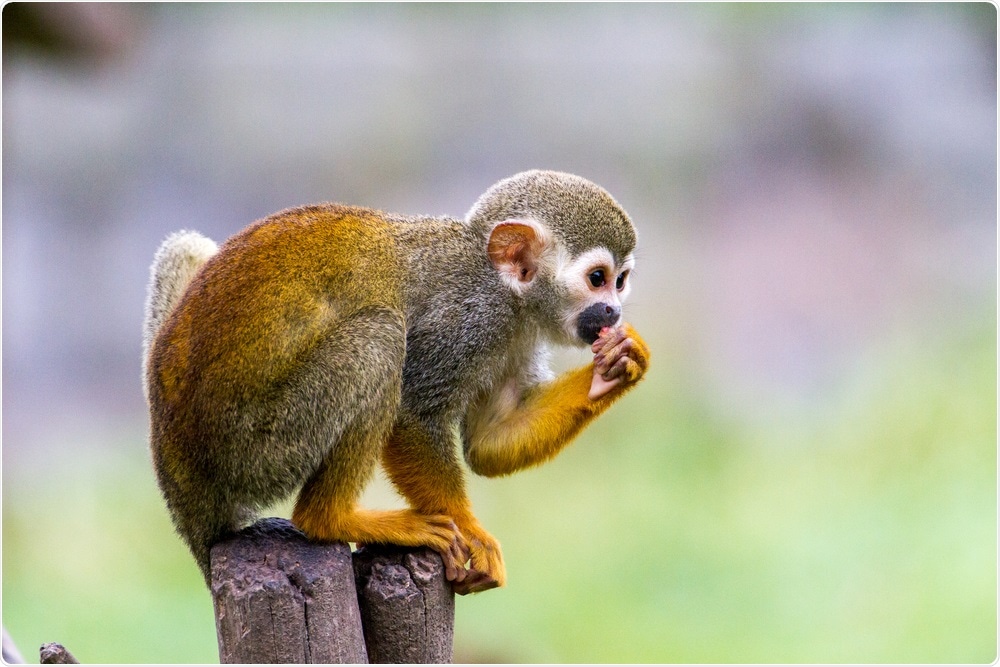In this interview, we spoke to Dr. Nels Elde about his latest research that led to the discovery of a new gene in monkeys that could help to develop new antivirals.
What provoked your latest research into antivirals?
We were curious if a cellular process exploited by viruses, including HIV, might somehow evolve resistance despite high levels of genetic conservation.
New antivirals are constantly being needed for the treatment of various viruses including HIV and Ebola. Why is often difficult to discover and develop new antivirals?
Many antivirals target specific virus features or functions and viruses can quickly evolve resistance with simple amino acid substitutions. Here we looked at how hosts might change from a genetic standpoint. This solves one challenge and we think evolution might have solved the second challenge of cell toxicity with the trial-and-error of mutation and selection over millions of years.

Image Credit: O-IAHI/Shutterstock.com
The charge multivesicular body protein 3 (CHMP3) is a human gene involved in cellular processes. How did CHMP3 duplicate to ‘retroCHMP3’ and what is the role of retroCHMP3 in virology?
There is a wild natural history here where an ancient retrotransposon, a “selfish” genetic element, made a mistake while replicating itself in the ancestors of New World monkeys. It instead copied the gene that encodes CHMP3 and this copy diverged into what we discovered and named retroCHMP3 in modern squirrel monkeys.
RetroCHMP3 seems to slightly delay some important cellular processes and this appears catastrophic for enveloped viruses like HIV and Ebola that need this process to complete virus replication cycles.
Can you describe how you carried out your latest research into retroCHMP3 as an antiviral?
We started just by comparing genes like CHMP3 in many primate and rodent genomes. The surprise was extra copies of CHMP3 in some genomes but not others. This fueled our curiosity.
What did you discover?
Some of these extra copies we named retroCHMP3 had features consistent with being antiviral. The coding region of the gene was shortened with a premature stop codon. This results in a protein with robust activity blocking virus release from infected cells.

Image Credit: Artem Verkhoglyad/Shutterstock.com
In previous research, the modified protein also disrupted important cellular functions, however, in your new research, this did not occur. Why was this?
The twist was additional point mutations in the gene that allow cells to tolerate retroCHMP3 without killing them or causing overt toxicity.
How could your research help to develop new antivirals for humans?
This provides a roadmap for a new approach to antivirals. Alter cell biology a little bit in ways that are devastating to virus replication.
RetroCHMP3 itself might be productively developed as an antiviral deployed genetically as part of future interventions that make somatic mutations and/or additions as part of autologous stem cell treatments.
The ongoing COVID-19 pandemic has shown us that when we work together, scientific advancements can be made fairly quickly. How could this level of collaboration be applied to antivirals and their development?
Accelerated tracks are very possible as shown with the breakthrough mRNA-based vaccines developed for SARS-CoV-2 in the last year. In these cases, it might be a question of tipping points where pandemics disrupt our lives in ways that shake everyone to attention and break down traditional barriers for advancement.
Similarly, for antivirals, we might be on the cusp of several new interventions like Merck’s new molnupiravir. I hope the pipeline fills quickly because cocktail approaches might be needed to avoid the rapid evolution of resistant SARS2.
What are the next steps for you and your research?
We are back to the starting line and all over the map chasing our curiosity about evolution at host-virus interfaces.
Where can readers find more information?
About Dr. Nels Elde
Nels Elde is an evolutionary geneticist in the Department of Human Genetics and an Investigator in the Howard Hughes Medical Institute at the University of Utah. He studies how interactions between infectious microbes and their hosts result in evolutionary conflicts resembling arms races.
The work reveals the wide-ranging impacts of viruses on the evolution of essential host cell processes. Nels co-hosts the science podcast This Week in Evolution (https://www.microbe.tv/twievo/). He was a recipient of a John D. and Catherine T. MacArthur Foundation fellowship in 2020.









 Add Category
Add Category

.png)